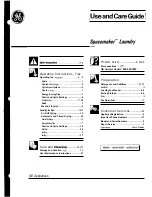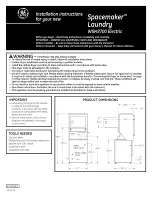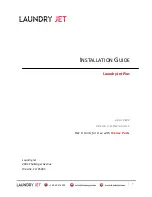
37
Chapter 6. Use
EN
MX 2
Depending on the type of food to be packaged, use the pouch support (8) as shown in the diagram below.
Using the support (8) helps position the pouch better with respect to the sealing bar (5).
Packaging large-sized
foods
Packaging medium-sized
and liquid
foods
Packaging small-sized
foods
If "reduced length" pouches are used, use the corner (8.1) to facilitate its correct positioning.
OK
NO
MX 4
Depending on the type of food to be packaged, use the table/s (8) as shown in the diagram below.
Using the tables (8) helps position the pouch better with respect to the sealing bar (5).
OK
NO
37
Chapter 6. Use
EN
MX 2
Depending on the type of food to be packaged, use the pouch support (8) as shown in the diagram below.
Using the support (8) helps position the pouch better with respect to the sealing bar (5).
Packaging large-sized
foods
Packaging medium-sized
and liquid
foods
Packaging small-sized
foods
If "reduced length" pouches are used, use the corner (8.1) to facilitate its correct positioning.
OK
NO
MX 4
Depending on the type of food to be packaged, use the table/s (8) as shown in the diagram below.
Using the tables (8) helps position the pouch better with respect to the sealing bar (5).
OK
NO
11/7
38
Chapter 6. Use
EN
6.3. Recipes
Preservation
It allows you to pack vacuum-packed foods choosing from 8 standard recipes, programmed according to the type of food
to be packaged.
From the home page press
and select the recipe.
Liquid
Ideal for vacuum packing in pouch of liquids and very moist food (soups, broth, sauce, juice, syrup,
gravies...).
The characteristic of this recipe is the presence of a sensor which, not detecting a lowering of pressure
during the air extraction phase, allows the cycle to pass to the next phase.
This characteristic is essential when packaging liquids and very moist foods which otherwise would boil.
Jars
(not supplied with this appliance).
Ideal for vacuum packing of food in glass jars (jams, marmalades, preserves, gravies, grilled vegetables and
vegetables in oil...).
3 types of recipes can be chosen depending on the food, which differ by residual vacuum at the end of the
cycle:
: Residual vacuum: 530 mbar
: Residual vacuum: 220 mbar
: Residual vacuum:
thanks to the presence of the sensor (as in “Liquid” recipe) this allows
each food item to obtain the lowest residual vacuum and even to pack liquids and very
moist foodstuff.
The recipe
gives the best results as it guarantees lower residual vacuum.
Recipes
and
can be used when packing particularly delicate food.
Insert the food in the jar and close it with the cover.
Place the jar inside the tank (4).
Select
and the required recipe
,
,
.
Close the cover (6) by pressing gently and press
.
The packing cycle will then start.
At the end of the cycle, open the cover (6) and remove the jar.
It is recommended to use glass jars with rubber seals (or else
glass jars with screw-on cap).
The jars must guarantee a residual vacuum of 5 mbar.
The maximum height of the jars must guarantee a safety distance
of at least 1 cm from the cover (6).
Only use jars and intact lids.
Do not use damaged jars.
Jar with
rubber seal
Jar with
screw-on cap
Firm
Ideal for vacuum packing of food in pouch (meat, whole cured meats, seasoned cheese, solid vegetables
e.g. potatoes, carrots...).
















































